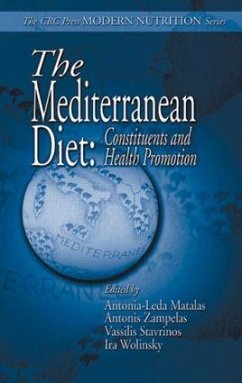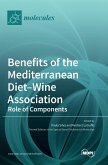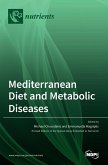Adults living in certain olive-growing areas of the Mediterranean Basin display high life expectancies and rates of chronic disease that are among the lowest in the world. These benefits are achieved despite socioeconomic indicators that are often much lower than those of more industrial nations in North America and Europe. Attention has focused on diet as the cardinal factor since food consumption patterns are closely tied to the incidence and severity of chronic debilitating diseases. The Mediterranean Diet: Constituents and Health Promotion explores in detail the relationship among the Mediterranean Diet, nutritional status, and disease and evaluates the nutritional practices that minimize or slow the incidence and progress of major diseases, especially heart disease and cancer. During the past ten years the Mediterranean Diet has been the subject of constant attention, debate, and controversy. It is the subject of ongoing studies as a cultural model for dietary improvement and health promotion in the United States and Europe. Divided into three sections, the book provides this information: Background: Learn about the history of the Mediterranean Diet and food patterns from the ancient Greeks through the present. This section also discusses the diet's classical antecedents and definition, paying particular attention to the characteristics, dietary patterns, and epidemiological aspects. Dietary Constituents: Discover the specific food components and commodities that constitute the Mediterranean Diet such as fats and oils; fruits, vegetables, legumes, and grains; milk and dairy products; meat and meat products; and alcoholic beverages. Health Promotion and Disease Prevention: Examine how the Mediterranean Diet promotes good health with regard to diabetes and obesity, coronary heart disease, cancer, and longevity. Also included are chapters offering dietary recommendations based on the current understanding of the diet, suggested future research and applications, and a useful summary chapter. The Mediterranean Diet: Constituents and Health Promotion provides a clear overview of this timely and controversial subject.
Hinweis: Dieser Artikel kann nur an eine deutsche Lieferadresse ausgeliefert werden.
Hinweis: Dieser Artikel kann nur an eine deutsche Lieferadresse ausgeliefert werden.








